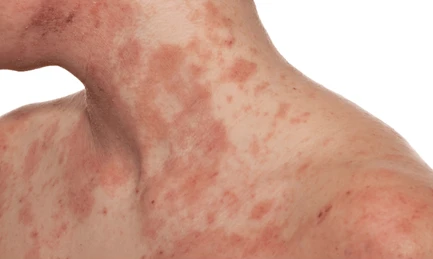Itching is pruritus' primary symptom. An itch is a painful feeling that makes you want to scratch your skin in order to feel better. It doesn't always help to scratch the itch.
If you scratch your itchy skin, you could have additional symptoms that include:
- Dry or cracked skin.
- Thick, leathery patch of skin (lichenification).
- Scratch marks (excoriations).
- Localized pain at the site of your itchy skin.
- Broken skin leaks a yellow to white fluid, doesn’t heal or has a scaly or crusty texture (infection).
- Skin breaks open and bleeds.
Additional symptoms of pruritus include:
- Small pimple-like bumps on your skin (papules).
- A rash forms on your skin that’s elevated or swollen (inflammation).
- Skin discoloration that’s lighter or darker than the skin surrounding it.
- Blisters or fluid-filled bumps on your skin.
- Large bumps on the affected area of your skin.
Sometimes, you could experience itchy skin along with additional symptoms like a rash or swollen skin. Other times, you’ll only experience itchy skin without other symptoms. Your provider will diagnose your condition and offer treatment options based on what caused your skin to itch.

